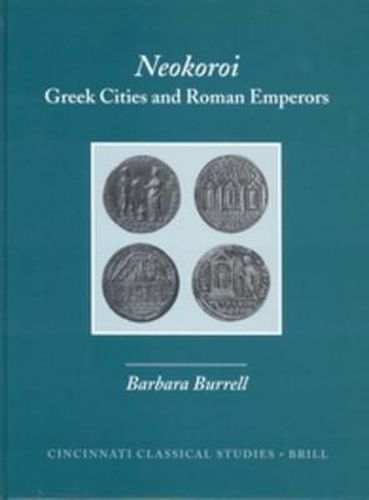Readings Newsletter
Become a Readings Member to make your shopping experience even easier.
Sign in or sign up for free!
You’re not far away from qualifying for FREE standard shipping within Australia
You’ve qualified for FREE standard shipping within Australia
The cart is loading…






The neokoroi, or ‘temple-wardens,’ were Hellenized cities of the eastern Roman empire who received that title for possessing their provinces’ temples to the living emperor. This work collects and analyzes all the evidence for the neokoroi, including their coins and inscriptions, contemporary and subsequent historical texts, and the archaeological remains of the temples themselves and the statues that stood within them. There were at least thirty-seven neokoroi, and each is examined in a separate chapter. The results are then re-analyzed chronologically, clarifying the development of the institution. Finally the statues, temples, cities, and provinces are compared, resulting in new insights into the rivalry and hierarchy among the cities, and the dialogue of worship that related them to their Roman overlords.
$9.00 standard shipping within Australia
FREE standard shipping within Australia for orders over $100.00
Express & International shipping calculated at checkout
The neokoroi, or ‘temple-wardens,’ were Hellenized cities of the eastern Roman empire who received that title for possessing their provinces’ temples to the living emperor. This work collects and analyzes all the evidence for the neokoroi, including their coins and inscriptions, contemporary and subsequent historical texts, and the archaeological remains of the temples themselves and the statues that stood within them. There were at least thirty-seven neokoroi, and each is examined in a separate chapter. The results are then re-analyzed chronologically, clarifying the development of the institution. Finally the statues, temples, cities, and provinces are compared, resulting in new insights into the rivalry and hierarchy among the cities, and the dialogue of worship that related them to their Roman overlords.